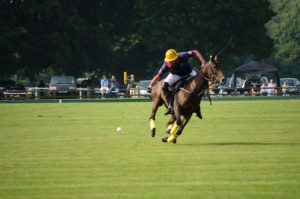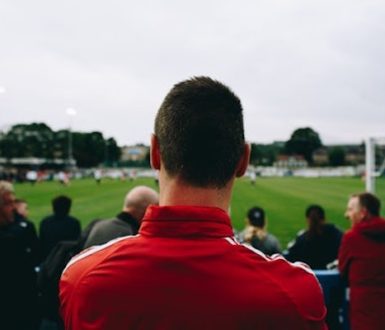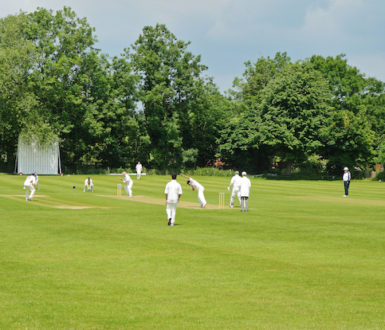Some sports have a strong association with social class

If you’ve spent any time in Britain you will notice how social class subtly affects most parts of daily life – and this includes sport. For example, in the Rio Olympics 2016, 33% of all medal winners had a private school background, yet only 7% of British children attend private schools.
The sports least affected by social class (at least at an amateur level) either have good public facilities or are easy for people to take part in. Examples are swimming, running, cycling, football, basketball, cricket, badminton, tennis and canoeing.
There are other sports that strongly associated with the upper class. These are usually activities that need exclusive facilities or expensive equipment.
Examples are:
- Real tennis: Alongside normal tennis (also called ‘lawn tennis’), there is a much older sport called ‘real tennis’. It is played indoors using a solid ball. Real Tennis clubs are nationwide, but mostly in private schools, universities or royal palaces. Most British people have never played it, or even seen it.
- Polo: Polo (pictured) is highly skilled – players try to hit a ball while riding a pony – but the cost of the facilities mean wealth is a necessary factor. There are strong links to royalty (many members of the royal family are keen players). Polo matches are usually high society events, for example the Cartier Queen’s Cup.
- Rowing: Using a rowing machine is a popular gym activity, but being part of a rowing team is only possible for people near a large river. Rowing is rarely taught in state schools, but is a proud feature of many private schools. Added to that is the cost of joining a rowing club. Rowers are therefore usually from the upper middle class or upper class. Famous British rowing events are Henley Royal Regatta (July) and the Boat Race on the Thames between Oxford University and Cambridge University (April).
- Lacrosse: Lacrosse in the UK is a minor sport that is mainly found in universities and community clubs. It is rarely taught in state schools, but has a strong link to some private girls schools. This means it has an upper class/upper middle class reputation.
There are also some sports that have a cultural association to the upper classes, but which are actually much more diverse. Examples are:
- Skiiing: Skiing has a middle-class association, mostly because holidays to west European and North American resorts are very expensive. However, artificial ski slopes have made skiing accessible to everyone and some east European resorts are more affordable.
- Horseriding: Owning or riding horses is considered to be a mainly upper class activity (mostly for historical reasons), but actually people of all social classes get involved despite the costs involved. Be aware the upper class call it ‘riding’ (not ‘horseriding’ – to them, a horse is the obvious choice).
- Country sports (hunting, shooting and fishing): Traditionally only landowners could hunt animals, so country sports have a strong link to the upper class. This is less true today, but these sports can be expensive, especially grouse shooting. One exception is fishing, which is cheap and easy to enjoy.
- Sailing: Owning a yacht is expensive, which means sailing is often associated with the upper middle class. Some people spend the summer in sailing towns like Bembridge, Fowey, Bosham, Holkham and Salcombe. However, there are other types of boat that are easy and inexpensive to sail – either on the sea, or on lakes or reservoirs.
- Croquet: This is a sport that needs to be played on a large lawn. In the old days, only rich people had lawns, so it became associated with the upper class (the Queen is the patron of the Croquet Association). Today, it is a popular garden game and it is not exclusive, even at a competitive level.
- Golf: Most golf clubs are welcoming, do not require membership and are very affordable (£20 for a round). Golf clubs are important places for business and social networking, so people often choose a club for these reasons. However, there can be a link to wealth – some clubs are invitation-only and very expensive (some cost over £50,000 a year).
- Rugby: There are two types of rugby: Rugby League and Rugby Union. In England, Rugby Union is often viewed as a middle/upper class version of football (soccer) and is sometimes called ‘rugger’. However, in Wales, Rugby Union is a working class sport, with teams originally formed by the workers in mines and other heavy industry. Rugby League also has working class origins. At a local level, Rugby Union and Rugby League teams are very welcoming and the sport is working hard to increase inclusivity.
Image: Pljvv/Dreamstime



